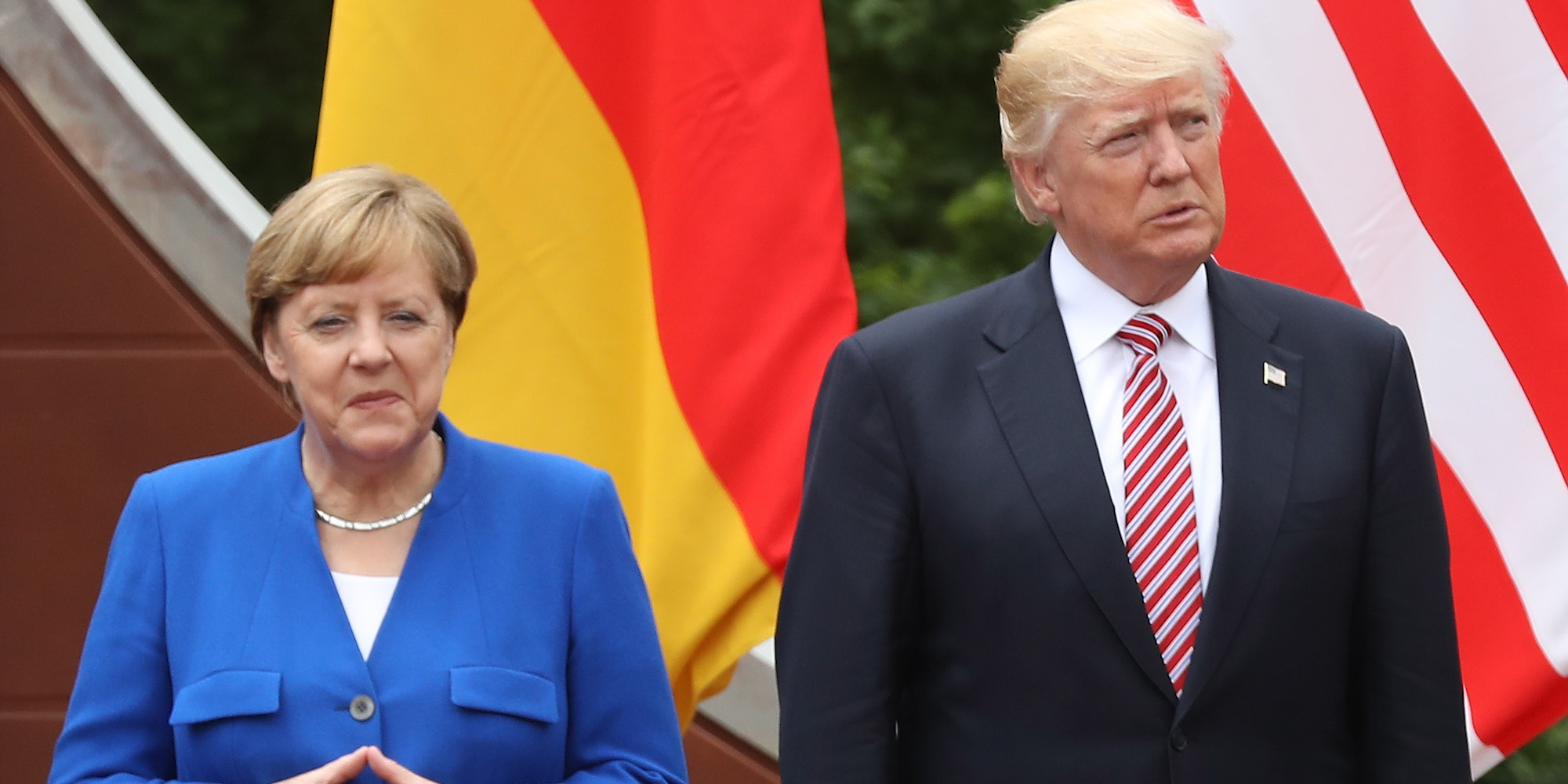- President Donald Trump on Wednesday claimed that Germany was “controlled” by Russia because “60 to 70% of their energy” comes from the country.
- While Germany doesn’t get that much energy from Russia, Trump did highlight a major part of Russia’s economic plan.
- Forty percent of Europe’s natural-gas imports, and 50% to 75% of Germany’s natural-gas imports, come from Russia.
President Donald Trump on Wednesday launched a broadside against Germany in which he highlighted a growing connection between the two countries.
Trump’s attacks on Germany focused on two major issues: defense spending and spending on energy imports from Russia.
“Germany is totally controlled by Russia because they’re getting between 60 to 70% of their energy from Russia and a new pipeline,” Trump said soon after arriving at the NATO summit in Brussels.
While Trump overstated the amount of Germany’s energy that comes from Russia, the president did shine a light on the NATO ally’s consumption of Russian oil and gas.
According to Eurostat, the European Union's main statistics agency, Russia is the source of 25% to 50% of Germany's oil imports and 50% to 75% of its gas imports. Overall, roughly 40% of Europe's gas imports come from Russia, according to the agency.
Additionally, companies in Western Europe, including Germany, are helping to build the Nord Stream 2 - a new pipeline from the Baltic Sea to Europe that is likely to boost Russia's natural-gas exports. Given Germany's commitment to reducing the use of coal and nuclear energy, the pipeline is seen as a key source of new energy in the coming years.
The growing consumption of Russian oil and gas comes at the same time Germany and its allies are confronting Russia over numerous issues, including Russia's invasion of Crimea and election interference around the world.
Russia's energy industry accounts for a large part of its economy, meaning the EU is providing it with a major economic boost.
But Trump also exaggerated just how deep the ties go.
According AG Energiebilanzen, a Germany energy-research group, 59% of Germany's energy consumption comes from oil and gas, with the other 41% coming from coal, renewable sources, and nuclear power. That puts roughly 20% of Germany's energy mix coming from Russian oil and gas, a high percentage but certainly short of the 60% to 70% that Trump suggested.
Additionally, as German officials later pointed out, Germany has also helped lead the sanctions on Russia in the wake of the invasion of Crimea.

